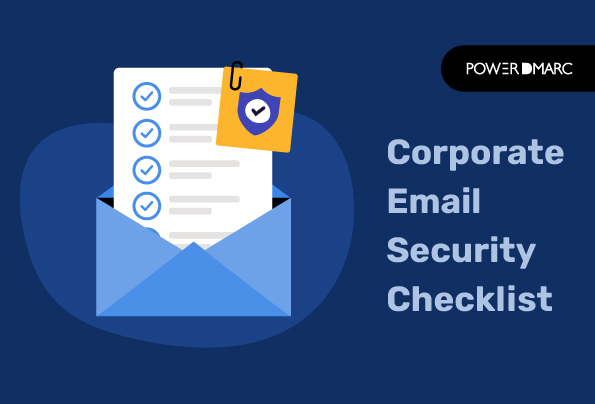Corporate email security is a topic that comes up constantly in the workplace. It’s important to remember that emails are personal, but they’re also professional, and they can be used to share sensitive information. As such, it’s important to recognize the importance of corporate email security and how it can impact your employees’ productivity and security, as well as that of your customers.
Corporate email security is important because it protects your company from the threats of spoofers, phishers, and other cybercriminals. It’s important to set up a corporate email system that’s secure and easy for employees to use.
No matter how well you’ve prepared your company for upcoming data security threats, it’s impossible to know what the future holds. We’ve all been there: You’re scrambling to make sure everything is in place before the big day, but then your entire business gets hit with a cyber attack and all of your hard work is rendered useless.
That’s why we’re here to help!
Why do you need to secure your corporate emails?
The first thing that should come to mind when you think about corporate email security is: “Why do we need to secure corporate emails?“
The answer is that there are a lot of threats out there. When you’re a business, you have a lot of valuable information—and if it’s not safe, it can cause you a lot of problems. Corporate email security threats like email phishing or spoofing are becoming more common. It is important that you stay up to date on the latest tips and tricks for securing your corporate email.
Security threats are constantly evolving, and it’s important to stay on top of new threat vectors that could potentially impact your organization’s corporate email security.
Have you ever had to send an email to a person in your company, and the email address was not recognized? Or maybe the message bounced back because the recipient did not have access to the account.
This can be frustrating and time-consuming. The company’s reputation is at stake, so they have to figure out what went wrong. It could be something as simple as a typo in a contact name or account password.
There are many reasons why companies should secure their corporate emails:
- Corporate email security threats like email phishing or spoofing can put your company at risk of losing customers, employees, and clients.
- Sending sensitive information via email can put your organization at risk for data breaches if someone gets access to it.
- Emails can also be used against you if someone manages to get into your company’s network by impersonating another employee or pretending that they are trying to deliver an important message from another department or division within the same organization (spoofing).
- Fortunately, there are some easy ways for companies to secure their corporate email accounts without having to hire expensive specialists or spend hours configuring complicated settings on their servers’ firewall systems.
Corporate Email Security Strategy
Corporate email security is important because it protects your company from the threats of hackers, phishers, and other cybercriminals.
It’s important to set up a corporate email system that’s secure and easy for employees to use. Here are some tips for making sure your corporate email system is as secure as possible:
1. Have a password policy in place.
Make sure you set up a password policy that requires a minimum number of characters, including letters, numbers, and symbols. Also, make sure that your passwords are unique and cannot be guessed by hackers or anyone else who might find them online.
2. Use two-factor authentication when possible.
If you’re still using one-time passwords (OTPs) as your authentication method, switch to another method such as SMS codes or tokens instead. If you do not have any other options available then stick with OTPs until others become available on the market which can provide better security than OTPs do today!
3. Install anti-virus software
Anti-virus software needs to be installed on all devices used for accessing corporate email accounts, including smartphones and tablets running on Android or iOS platforms (Apple devices only). This way if someone were able to break into your network they would be caught immediately by this software before they could do any damage!
4. Deploy email authentication protocols
Deploying email authentication protocols like DMARC, SPF and DKIM adds a feather on your cap and marks a crucial addition to your corporate email security checklist. They offer protection against a wide range of email-based attacks like spoofing, phishing, BEC, and ransomware.
Analyzing your email channels to monitor flaws in your corporate email security posture
The final step towards achieving compliance on your corporate emails will be to configure a DMARC report analyzer. This will help you:
- View your SPF and DKIM authentication results for every email sent from your domain (PASS/FAIL)
- Keep a close eye on your third-party email service providers (such as MailChimp, FastMail, etc) and corporate email sending sources
- Take actionable steps against spoofing and phishing attempts, and domain impersonation
- View your DMARC reports in 7 different human-readable, organized viewing formats that are downloadable in a PDF format
Corporate emails can be just as risky as personal ones when it comes to security because they’re often viewed by employees as official communications from their company or organization.
Like personal emails, corporate ones are often sent from someone with a legitimate access level and/or permissions to send them, containing sensitive information—like financial data or private information about patients and customers—that can be misused if the wrong person has access to it.
To prevent corporate email compromise, protect your domain with DMARC starting today! Take a free DMARC trial now.
- Kimsuky Exploits DMARC “None” Policies in Recent Phishing Attacks - May 6, 2024
- Rise in Tax Scams and IRS Email Impersonation Attacks During Tax Season - May 2, 2024
- Email Safety 101 to Fight Crypto Scams - April 30, 2024
